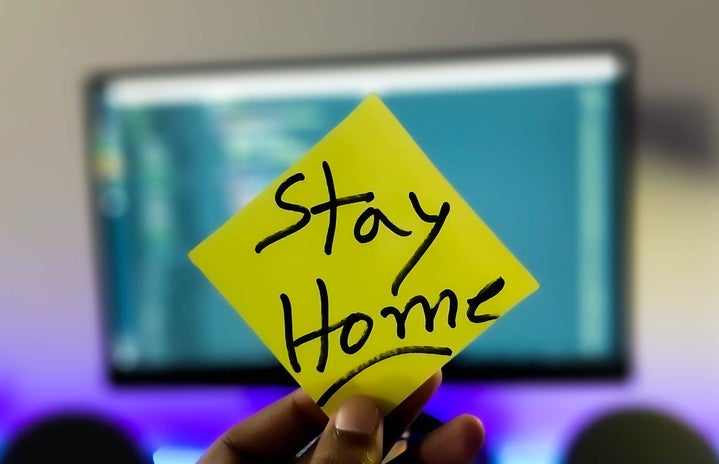It is easy to feel trapped in our own homes right now as many of us are under stay-at-home orders or following social distancing protocol. As the world around us rapidly changes, it is normal to be scared or feel a bit anxious, but many of us can take comfort in knowing that while our homes feel like a cage, they are actually keeping us safe. This is not the case for everyone, however, and it is important to highlight violence in the home right now more than ever when cases of child abuse, intimate partner violence and elder abuse are at a higher risk.
According to Melanie Blow, the chief operations officers of Stop Abuse Campaign, “Domestic violence victims need a lot of the things that we take for granted; they need income, they need health care, they need law enforcement, they need courts, and sometimes they need domestic violence or homeless shelters. And all of those are impacted to varying degrees right now.” In order to protect the overall public, many resources that are necessary for survivors of abuse are temporarily closed, overwhelmed or even in danger of infection, such as shelters for battered women. Now more than ever, victims of abuse cannot ‘just leave’ their abusers.
The lack of support and resources is not the only issue connected to the increased risk of domestic violence. Stay at home orders and isolation is just that, isolating. The National Domestic Violence Hotline (NDVH) has not received an increase in calls because according to Katie Ray-Jones, the chief executive officer of this organization, survivors are likely unable to get time alone to contact the hotline. This isolation can also be used as a form of control. Ray-Jones stated, “Perpetrators are threatening to throw their victims out on the street so they get sick.” Time reports that one caller to the NDVH said, “My husband won’t let me leave the house” and another caller who was strangled by her partner was scared to seek medical attention because of the fear of contracting COVID-19.
Not only is this fear of COVID-19 being used as a control tactic, but the stress associated with this pandemic can also be linked to an increase in the risk of domestic violence. In the United States, according to CNN, unemployment, liquor sales, and fire-arm purchases are on a drastic rise, and all three of these can negatively impact intimate partner violence. In fact, unemployment is associated with riskier drinking behavior which can lead to domestic violence, and “an abuser’s possession of a firearm makes it five times more likely that a domestic violence victim will be killed.”
There is some evidence of increased rates of domestic violence, as well. Emergency calls associated with reports of domestic violence disturbance have increased from 10-30% across 24 states, and in Britain, the national domestic abuse hotline saw an increase in calls by 25% and a 150% increase in visits to their website.

It is also important to note that family violence is not limited to a husband or a wife but runs the gamut of relationships, gender identities, and sexual orientations. Those at risk often are the most vulnerable: the elderly and children. Elder abuse and child abuse are aspects of family violence that can be overlooked. Right now, when there are no schools for children to go to and a lack of formal support for elders, important safety nets have been lost. The CDC states that the risk of elder abuse increases when the caregiver was unprepared, there is a lack of formal and social support and limited services for the elderly which is often the case now. On top of that, with COVID-19 being such a threat to the elderly population this is only another added layer of stress and potentially could be associated with older people being afraid to leave their homes for help, much like with the survivors of domestic violence quoted earlier.
In this time of urgency now more than ever, donations to your local agency that fights family violence are needed, as well as public awareness. Check in with your loved one and share the numbers for hotlines.
If you or someone you know are in need of assistance in regards to domestic violence you can contact the National Domestic Violence Hotline at 1-800-799-7233 or if you’re in the Akron area contact Hope and Healing at 330-374-1111 or Victim Assistance Program at 330.376.0040. If you suspect an instance of child abuse or neglect in Ohio call 855-642-4453. If you suspect an instance of elder abuse in Ohio call 1-855-644-6277.



